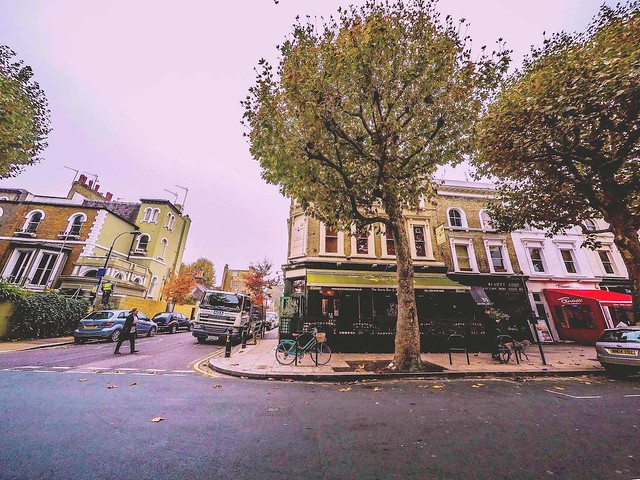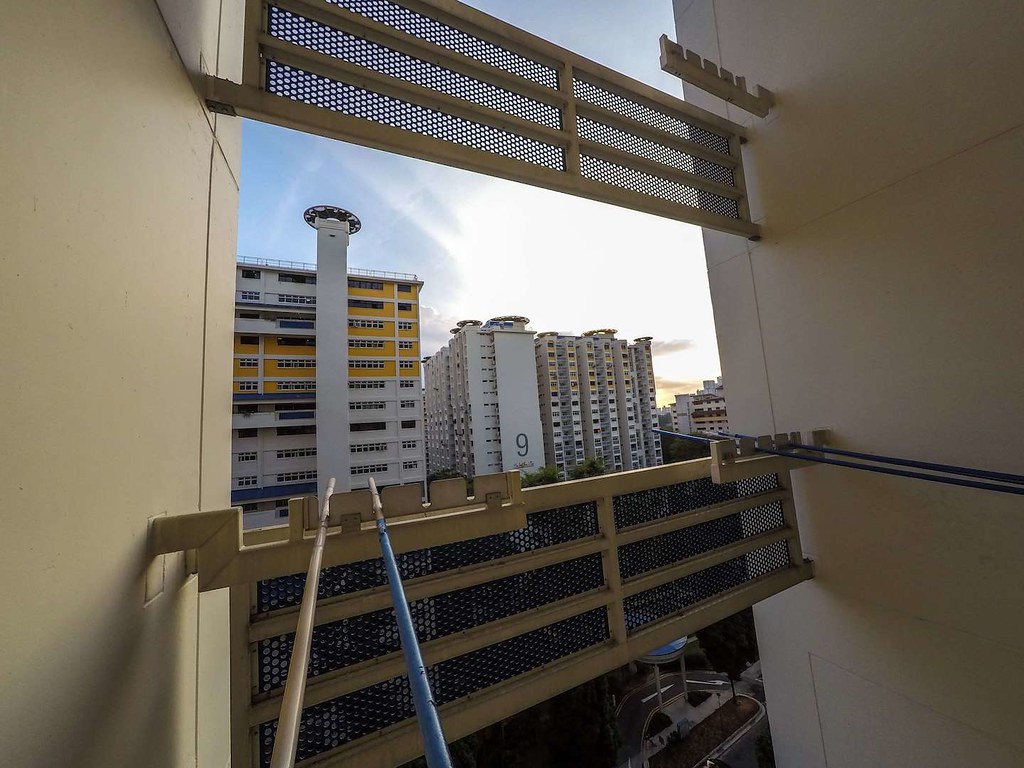Lessons from living in 3 of the most expensive cities in the world
Sometimes where you live determines the standard of living you can afford. It can be a harsh reality, or something you deal with and plan for.
Over the last 5 years, I’ve lived in 3 of the most expensive cities in the world: New York, Singapore and London. Although salaries are generally higher in these cities to match the cost of living, if you are a poor student like me then you still need to be a bit careful with your money. Here’s what I learned from living in some of the most notoriously money-sucking cities of the world.

Snow covered Riverside Park in New York City
How did I end up there?
I grew up in New York, so I lived there for most of my life and by default learned about living in an expensive city from my parents. For the PhD from January 2013 until a few months ago in late 2016, I moved to Singapore and London for about 2 years each. I’m now back in New York indefinitely, and living at home until I find my feet.
Each city is expensive for different reasons. In New York, one of the reasons is the rent can be too darn high. In Singapore, going out is expensive. In London, pretty much everything is expensive. (I think out of the three, rent is the worst in London!) It’s possible to make do in each city without sacrificing too many of the things that you love. With a little planning and forethought, you’ll be fine!
Lessons in frugality
Being frugal doesn’t mean you have to be cheap. Figure out what your priorities are, and have a little bit of cushion for the occasional splurge.
Here are the main lessons I’ve learned from living in expensive places on a budget.
1. Don’t buy all your groceries in the same place
Supermarkets often have sales of specific items to lure people in, in the hopes that they will buy other things there as well. But you are smarter than that! This is my number 1 lesson, but also one of the more difficult ones that requires more legwork.
Find 2 or 3 places where you like to buy groceries and go to each of them regularly (e.g. once a week). You’ll soon get a sense for what usually goes on sale and where, and you’ll have a mental list of where to buy what. Another thing to try is Amazon Pantry or Subscribe and Save. If there are items that you use a lot of, you could save 10 to 15% by buying with Amazon.
I don’t always go for the cheapest things. In London, I would go to Whole Foods at least once a week and get a few things there. Some of the produce can be quite affordable, and sometimes things go on sale. Also, because I have to cook with a food intolerance, some specific ingredients were only found in Whole Foods. Other times, I’d go to Sainsbury’s and Tesco.
In New York, we go to C-Town for groceries, but also to Fairway and Trader Joe’s, and occasionally Whole Foods. We also go to farmer’s markets (aka green markets). The one in Union Square is my favorite one! In New York, you’ll see flyers aka circulars that advertise that week’s sales in various supermarkets. Pick one up when you enter the supermarket and see if anything you need is on sale. We also go to Chinatown once a week or every other week to get groceries (salmon is $7.99 per lb!).
In Singapore, you can go to FairPrice, Cold Storage, Sheng Siong or wet markets. The wet markets are usually part of the same complexes as the hawker centers (where all the food stalls are). They are usually great on weekend mornings for all your fresh produce, fruit, eggs, and meats. You may get the best local products there, and often the best prices. There are a few specialty markets too, like the organic shops (SuperNature) and Japanese department store and food market (Isetan).

The local pub in my hood in London
2. Walk, if you can
Some cities are great for walking, others less so. New York is great for walking. London is kinda in the middle, and Singapore is terrible for walking. When I first moved to Singapore, I tried to walk from home to campus, for the whole way or half the way to the internal shuttle bus. I was always a hot sweaty mess when I got to the office, and a few months later gave that up. The sidewalks are so narrow in London that I don’t find it a pleasant experience sometimes. New York is great for walking, but in some areas you may need to watch out for dog poop!
3. Visit hip neighborhoods, don’t live in them
I can’t say that I’ve ever lived in a cool neighborhood. Now back in New York, my old neighborhood is an “up and coming” neighborhood. This is all thanks to a university that is expanding and growing some new buildings right down the block from me. They are literally digging up the ground to put in the roots of the buildings.
Nevermind that, though. It’s not super important to be living in a hip neighborhood, because you can still enjoy the neighborhood without having to pay the rent to be there. If you want to be close, look for places in a nearby neighborhood that may also be “up and coming” but not quite there yet. For example, Greenpoint in Brooklyn is an up and coming neighborhood next to the trendy Williamsburg, but is relatively more affordable to live in.
4. Meet friends for non-dinner activities
Going out for dinner all the time can be expensive. Choose to meet for other meals in the day (hello brunch!), or for a coffee or a drink. If it’s nice out, go for a walk or wander! Go for a peek at a new exhibition, or join a board games meet up.
You can check out Meetup.com for more ideas on free or cheap activities. If there is something you are into or have been meaning to try, there is probably a meet up for it! You can even hit up a meet up when you are traveling. It’s a great way to meet some new people!
5. Plan ahead
For some activities, planning ahead will be your best bet for saving a few bucks. If there is a show you have been meaning to see, check for tickets a few months in advance. If you know you are approaching your eating out budget for the week, plan to only accept invites for what you know you can afford. When your paycheck comes in, set aside the amount you need to pay your rent so you aren’t scrambling when it’s due.
All these things can become habits over time, so you won’t even need to think about it!
But don’t be a stickler
That said, don’t let watching over your money take over your life. It’s easy to let it become an obsession, and then you’ve lost sight of the forest. What’s important is that you have a handle on your financial situation, while still enjoying life in the city. You can live in New York on a budget, or London, or Singapore. But you may have to make some adjustments.
It’s ok to splurge once in a while, in a somewhat controlled way. Put a little bit of buffer in your monthly budget so you have wiggle room. I had a friend who would schedule her life and activities down to minutes (i.e. “This certain thing should only take 3 minutes!”), but then she wouldn’t add any buffer time so she would often end up being late. Don’t be like her! Add some buffer!

View from my friend’s apartment in Singapore
One way to do things
You don’t need to follow any of these lessons if you don’t want to. It does take a little more effort and thought. I have a friend who while he lived in Singapore lived from paycheck to paycheck. We were students on a meager stipend, and he would blow a lot of money on the weekends on going out and clubbing. He still got by ok, but he did have to eat instant noodles the week leading up to payday. But he got by.
You can figure out what works best for you. Do you want to prioritize activities or food, or something else? It’s up to you. Budgeting for living in an expensive city takes a little creativity sometimes. (See my budget for living in Singapore as an example.)
If you can’t help yourself (like some may say they can’t in New York), then maybe that means you can’t spare the willpower to live in that city long term. That’s ok. If you know this about yourself, then that is half the battle. Do what you can!
Have you lived in an expensive city? What are your tips for maintaining your lifestyle while watching your pocketbook?
